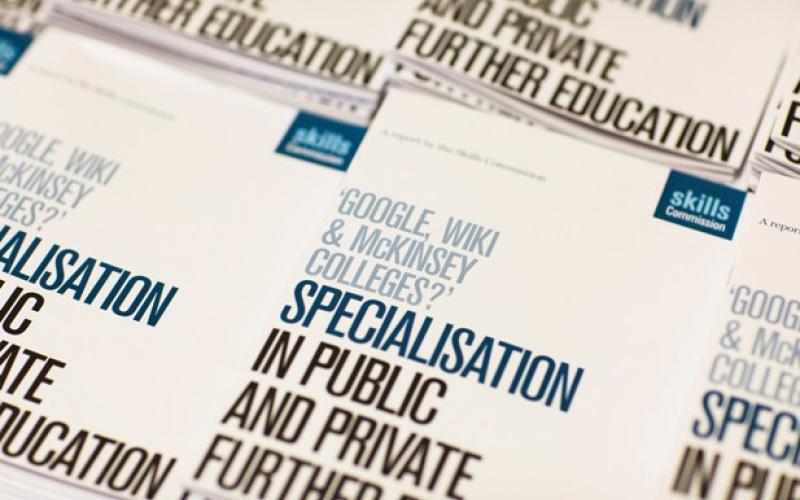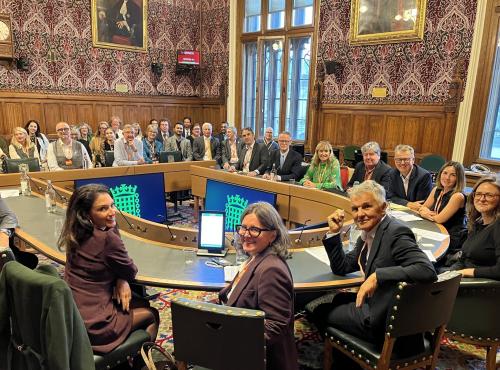Google, Wiki, and McKinsey colleges? Specialisation in public and private further education
The Skills Commission's latest report calls for a radical reshaping of further education in the UK to ensure not only that young people are being better equipped with the skills needed to find a job, but also, as a result, that colleges can play a bigger role supporting SMEs and local and regional economic growth.
The report, which is the result of a parliamentary inquiry conducted by an independent group of cross-party MPs and leading figures from the further education sector, makes a series of recommendations designed to ensure that vocational and technical education is more responsive to the needs both of the individual, but critically also of employers and local business communities.
In the report, the Commission argues that the “new economic reality” of slowing growth, rising unemployment, and declining public investment means that the FE sector must prioritise the development of specialist, employer-led vocational and technical education to ensure standards are improved and that students leave college with precisely the skills that businesses need to grow.
Under the proposals, formal ties between colleges and their local business communities, from individual companies to Local Enterprise Partnerships, would see vocational courses created and adapted to meet specific local and regional business demand. Multinational companies would also be encouraged to buy stakes in colleges – creating new branded colleges, such as a ‘Google College’ or ‘Dyson College’.
Building on Lord Heseltine’s growth review, the report calls for the creation of a network of ‘McKinsey Colleges’ to support local and regional economic growth. These colleges would be encouraged to expand their commercial activities and provide business development services to SMEs.
The report calls on the UK Commission for Employment and Skills to examine how specialisation can be used to encourage large firms to invest in the specialist facilities and equipment across the further education sector.
The Commission also urges the Government to establish a publicly backed loan scheme for new capital investment in further education, ensuring that colleges have up to date facilities.
Last week’s annual report from Ofsted demonstrates that not enough FE providers are rated outstanding or good, and that over the last 3 years improvement in the quality of provision has been too slow. Only 56% of providers inspected this year were judged good or outstanding for teaching. The Commission’s report supports Ofsted’s recommendation that more teachers need access to specialist continuing professional development. The report also argues that new incentives must be found to encourage employers to work more closely with colleges to create a revolving door between industry and further education.
If you have any questions about this report, or any of the Skills Commission's research, please don't hesitate to contact us.








